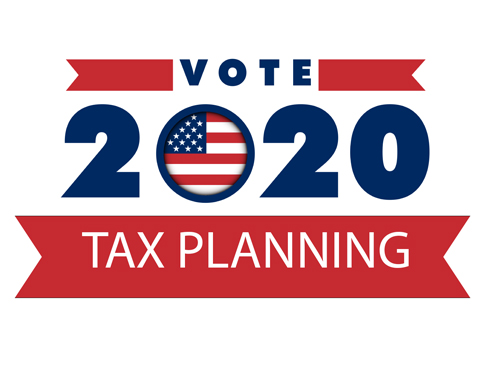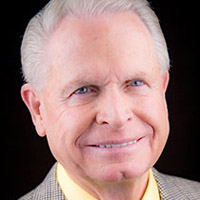Tax Planning In November 2020

Tax planning in November 2020.
Depending on who gets into office, there will be notable differences in philosophy of the direction things are going. After a year of unprecedented government spending amid the coronavirus pandemic, how revenue for the government will be collected into the future will matter.
We’ve already seen several states take on substantial deficits and look towards the federal government to help. In the event, the federal government doesn’t step in and give assistance, they’re going to have to roll back and look to the population of taxpayers to make up the difference.
California
California has made indications of different ways that they’d raise taxes, one of them would be raising the income tax, however, beyond that they have also indicated that they were going to put a net worth tax on all property except for real estate, because real estate already is subject to property tax. Governor Gavin Newsom backed off the net worth tax due to push back, nevertheless, it may reemerge in 2021 for when the state seeks to balance its budget. One of the other things that California did recently is they slipped in a utility tax to tax internet communication providers such as Zoom. People in California who are paying their monthly zoom bills are now getting an extra charge due to a state utility tax and California will continue to look at different ways that they can raise taxes.
Let’s take a moment and move back to federal and state income tax. If we look at what’s currently in place, President Trump would like to keep in place the 2017 income tax cuts that were put into play, reducing the top individual rate from 39.6% down to 37%. If nothing else changes, those are set to expire in 2025. Former Vice President Joe Biden, on the other hand, would like to return tax rates back to nearly the 39.6% and eliminate the $10,000 cap for state and local tax deductions. This cap had the effect of raising taxes on households in high tax states such as New York and California. [Under Biden’s plan] top earners, people earning over $400,000 a year, are going to be a target for raising money and carrying the burden of tax. Both candidates say that they want to cut taxes on households in the middle brackets. President Trump made a proposal prior to COVID-19 19 that would lower the 22% tax bracket down to 15% for middle income earners, meanwhile, Biden offers more incentivized tax breaks to encourage retirement savings, childcare spending and first time homebuying.
Corporate Taxes
In the world of corporate taxes, Trump is sticking to the reduction made in his 2017 tax law that lowered the corporate tax to 21% from 35%. Challenger Joe Biden would like to take that rate and have it bumped back up to 28%. A corporate tax increase would be unfortunate for all of the people who chose to revoke their S Corp elections or LLCs. This group of individuals would suddenly find that the corporate rate they had experienced at 21% had just been raised substantially. Both candidates also offer plans that create incentives for domestic manufacturing.
In the world of capital gain tax, the 2020 presidential candidates differ particularly in taxing profits on stock. President Trump would like to drop the current tax rate from 20% on capital gains to 15% and has even considered a temporary capital gain tax holiday- a zero tax rate on capital gains. Meanwhile, former Vice President Biden plans to change the existing rules in which can potentially lead to a 39.6% tax on top earners on profits of more than $1 million.
Until we really are able to determine who’s going in as president, it will make tax planning very, very difficult through the end of 2020. My advice is to wait and see. Right now, the stock market is responding with a lot of volatility and they’ve already priced in a Biden win. So, for right now, hold on and watch what’s going on. But don’t forget to get the planning in place before year end. If you need that assistance, seek the help of a competent tax advisor to give you direction during this time of volatility and uncertainty.
Note: This transcript was produced electronically, as such, it cannot be relied upon to reflect the exact wording used; further, it may have been edited for concision and clarity.
If you have questions or need expert tax or family office advice that’s refreshingly objective (we never sell investments), please contact us or visit our Family office page or our website at www.GROCO.com. Unfortunately, we no longer give advice to other tax professionals gratis.
To receive our free newsletter, contact us here.
Subscribe to our YouTube Channel for more updates.
Considerately yours,
GROCO, GROCO Tax, GROCO Technology, GROCO Advisory Services, GROCO Consulting Services, GROCO Relationship Services, GROCO Consulting/Advisory Services, GROCO Family Office Wealth, and GROCO Family Office Services.

Alan L. Olsen, CPA,
A special thanks to our sponsor, GROCO.com

What Venture Capitalists Want | Wally Hawley
About Wally Hawley Wally Hawley is a co-founder of InterWest Partners (1979), one of the larger venture capital partnerships in the United States, formed to make equity investments in diversified U.S. growth companies. His prior experience includes seven years as President of SHV North America Holding Corp., a wholly owned subsidiary of a Netherlands…
Venture Capital’s Role in Nuclear Science | Ray Rothrock
About Ray Rothrock As a venture capitalist for more than two decades, Ray has assisted entrepreneurs in achieving their dreams and produced outstanding financial returns for his limited partners. He has personally discovered, created and guided more than 50 companies in the Venrock portfolio through their early stages of formation and emerging growth. Beginning…
Doing the Tough Things First | Ray Zinn
About Ray Zinn Ray Zinn is a co-founder of the Company Micrel and has been its President, Chief Executive Officer and Chairman of its Board of Directors since the Company’s inception in 1978. As our Chief Executive Officer, Mr. Zinn gives the Board of Directors insight and in-depth knowledge of the semiconductor industry and…
Todays China | Nicholas Hope
About Nicholas Hope Nicholas Hope is the Director of the Stanford Center for International Development (SCID). He also directs SCID’s China research program. His current research is private enterprise development in China and progress of reforms in China, especially in the financial sector. His interests are in East Asian economies, especially China and Indonesia,…




